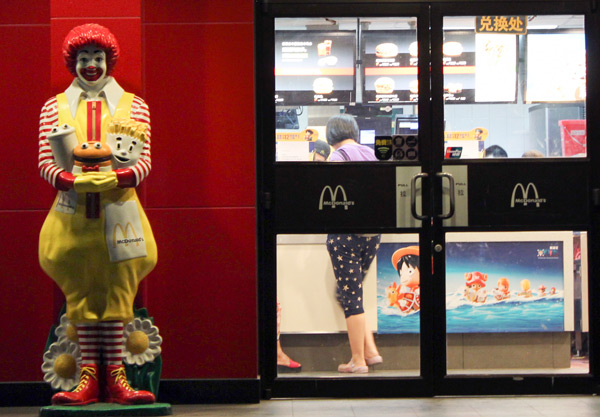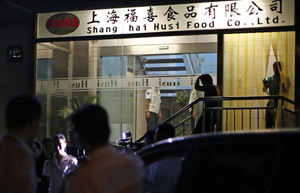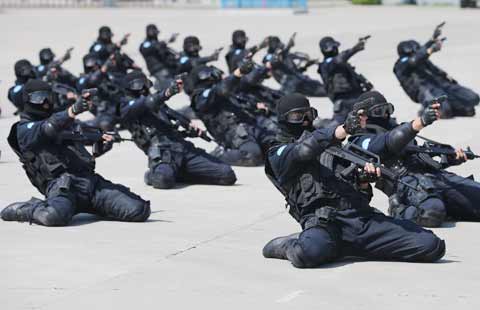Harsher safety measures urged amid scandal
By WANG HONGYI in Shanghai (chinadaily.com.cn) Updated: 2014-07-28 20:36
 |
|
A customer shops at a McDonald's in Mudanyuan, Beijing, on Sunday. The shop has shelved all meat products. Wang Zhuangfei / China Daily |
Legal experts and industry insiders are calling for more stringent legislation on food safety after a scandal involving the Shanghai Husi Food Co.
The company, owned by the US-based OSI Group, has been accused of mixing fresh and long-expired meat products.
The food safety scandal has spread across the country, entangling many international fast-food brands, including McDonald's, KFC, Pizza Hut and Starbucks Corp.
The case comes as China is attempting the first revision of the Food Safety Law, which took effect in 2009.
"Food safety is an important issue concerning public health and people's livelihoods. In Shanghai, whoever the violator is, they will be strictly punished," the city's Party chief, Han Zheng, said at a work conference on Sunday.
Government departments should strictly supervise every key point in the supply chain, said Han, who praised the media's important role in uncovering the Husi case.
Shanghai lawyer Yan Yiming said, "We hope that the penalties for food safety offenders can be increased as the country revises the law." An industry insider, who declined to be named, said: "Over past years, punishment for food safety violators has been increased but it still lags far behind that in developed countries. There should be much higher punishment for offenders."
Qiu Baochang, head of the legal team at the China Consumers' Association, said the revised law should clarify who is the responsible party in any food safety incident. This month, the National People's Congress released a draft version of the Food Safety Law on its website to seek public opinion. The draft promises tougher punishment for offenders and to the establishment of a stricter food safety supervision system.
Zhang Yong, head of the China Food and Drug Administration, said the current law has been "somewhat effective" in improving food safety, but the situation remains severe. The existing system is not effective, penalties are comparatively light and offenders are not deterred, Zhang said. A Shanghai television report last week showed staff members at Shanghai Husi Food Co allegedly mixing long-expired meat into products. The company also allegedly forged production dates.
Five people have been detained by police in connection with the case.
The Shanghai food safety watchdog on Saturday said the company had forged production dates on more than 4,300 cases of smoked beef patties. The dates were altered to January 2014 from May 2013. More than 3,000 cases have already been sold.
In a statement on its website late on Saturday, the OSI Group said it will withdraw all products made by Shanghai Husi from the market. The group said it is conducting a thorough internal investigation and will "take swift and decisive action" against those responsible.
The group also said it had sent a new management team to China to ensure that operations run effectively.
Brent Afman, OSI Group's general manager for the Asia-Pacific region, said it will cooperate with authorities in China over the investigation.
wanghongyi@chinadaily.com.cn
Related news
- Meat supplier in China scandal has global reach
- Scandal-hit China food firm withdrawing all products
 |
 |
| Meat supplier to fast-food giants raided | New scare hits fast food chains |
- Tough accountability code for officials
- Hanlixuan suspended for reprocessing leftovers
- Many oppose college tuition hike
- US visa delays likely to continue, says embassy
- Anti-graft watchdog gets tough in cleanup
- Drills to have 'little impact' on civilian air services
- Humble dresser is a reminder
of atrocities - Report on army cheats sparks concern
- Revision of decree protects military airports
- Scandal-hit China food firm withdrawing all products







